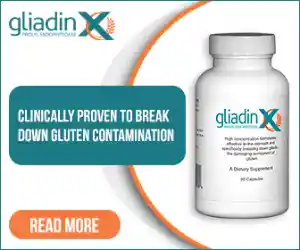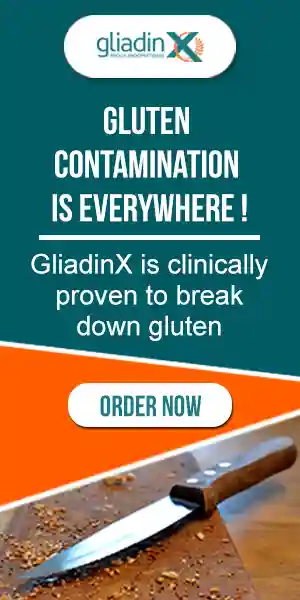-
Welcome to Celiac.com!
You have found your celiac tribe! Join us and ask questions in our forum, share your story, and connect with others.
-
Get Celiac.com Updates:Support Our Content
Lower left back pain
-
Get Celiac.com Updates:Support Celiac.com:
-
Recent Activity
-
- Bebygirl01 replied to Bebygirl01's topic in Introduce Yourself / Share Stuff1
Not Just Wheat, Barley and Rye Glutens that make us sick
corn: It is the second most commonly genetically modified food on the planet (soy is #1) Genetic modification of foods continues to kill animals in scientific studies. It is an incomplete protein. It is difficult for humans to digest (ever see corn in your stool?) It is high in calories and low in nutrient value It is a new food... -
- Bebygirl01 posted a topic in Introduce Yourself / Share Stuff1
Not Just Wheat, Barley and Rye Glutens that make us sick
Corn Gluten vs. Wheat Gluten: Corn gluten (zein) is different from wheat gluten (gliadin), but both are types of gluten. Inflammatory Response: Some celiac patients have shown an inflammatory response after consuming corn. Cross-Reactivity: Corn can mimic gluten in sensitive individuals, potentially triggering immune responses similar... -
- Scott Adams commented on Scott Adams's article in Additional Concerns3
Gluten-Free Options at Starbucks: A Guide for Celiac and Gluten-Sensitive Customers (+Video)
Good on you--it looks like you followed the recommendation in the article: "Communicate Clearly: Inform your barista about your gluten-free needs and ask about preparation methods."- celiac disease
- coffee
- (and 8 more)
-
- Scott Adams replied to Mo Stipisic's topic in Gluten-Free Foods, Products, Shopping & Medications1
Home-made kefir
Welcome to the gluten-free journey! It’s great that you’re exploring ferments like kefir—they can be a wonderful support for gut health, especially when navigating celiac or gluten sensitivity. Kefir is rich in probiotics, and many people find it soothing during gut healing. It’s great that you’re already thinking about making sauerkraut and kimchi too—those... -
- Peggy M commented on Scott Adams's article in Additional Concerns3
Gluten-Free Options at Starbucks: A Guide for Celiac and Gluten-Sensitive Customers (+Video)
When the new Starbucks opened near me, I drove over to get a Frappuccino only to be told they wouldn't sell me one since the machine is used for many types and there would be cross contamination. So, no frapps there. I must go to the place that only makes gluten-free ones.- celiac disease
- coffee
- (and 8 more)
-












Recommended Posts
Create an account or sign in to comment
You need to be a member in order to leave a comment
Create an account
Sign up for a new account in our community. It's easy!
Register a new accountSign in
Already have an account? Sign in here.
Sign In Now